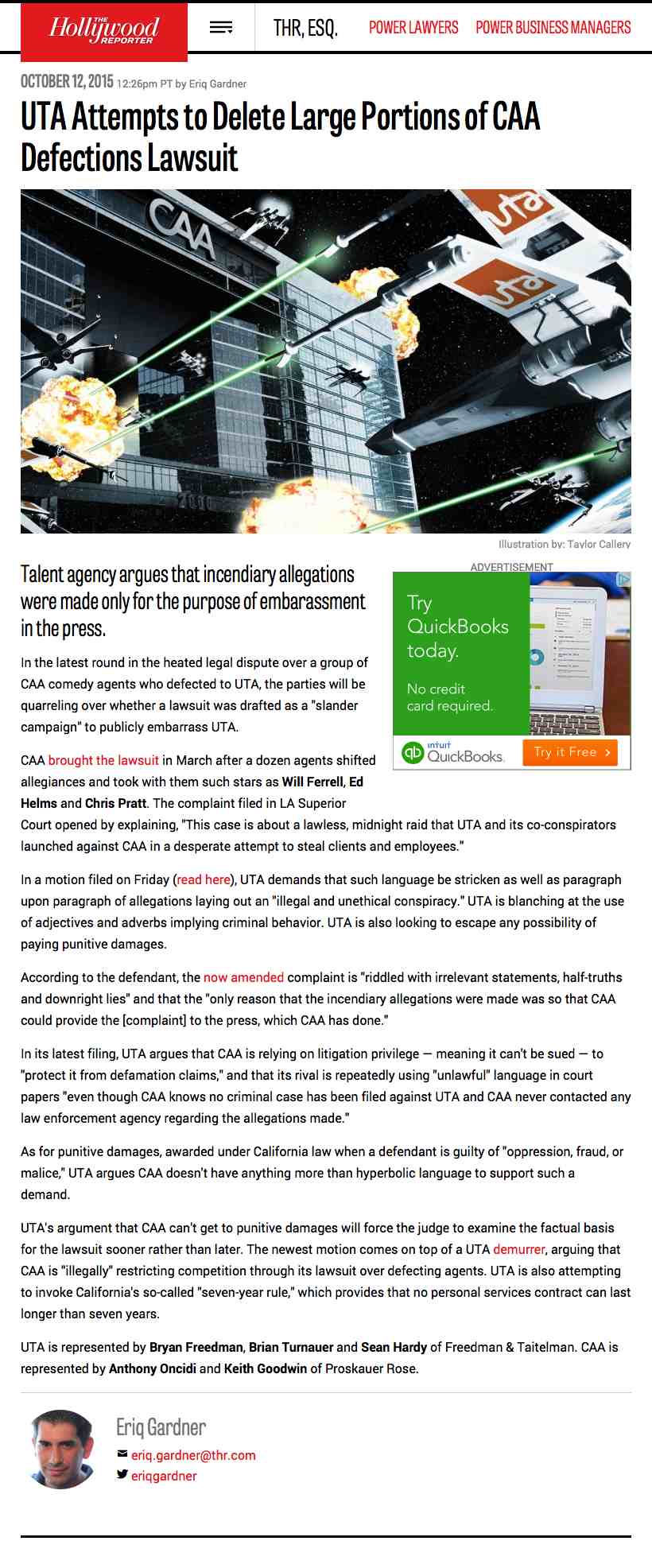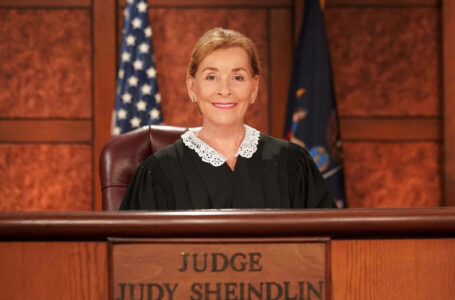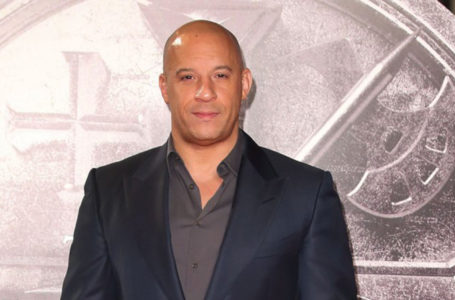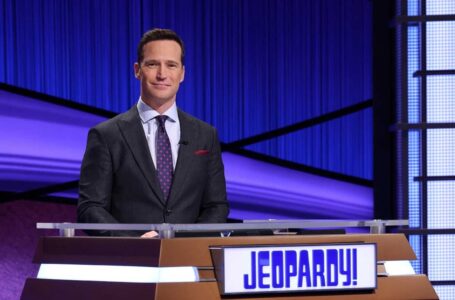Talent agency argues that incendiary allegations were made only for the purpose of embarassment in the press.
In the latest round in the heated legal dispute over a group of CAA comedy agents who defected to UTA, the parties will be quarreling over whether a lawsuit was drafted as a “slander campaign” to publicly embarrass UTA.
CAA brought the lawsuit in March after a dozen agents shifted allegiances and took with them such stars as Will Ferrell, Ed Helms and Chris Pratt. The complaint filed in LA Superior Court opened by explaining, “This case is about a lawless, midnight raid that UTA and its co-conspirators launched against CAA in a desperate attempt to steal clients and employees.”
In a motion filed on Friday (read here), UTA demands that such language be stricken as well as paragraph upon paragraph of allegations laying out an “illegal and unethical conspiracy.” UTA is blanching at the use of adjectives and adverbs implying criminal behavior. UTA is also looking to escape any possibility of paying punitive damages.
According to the defendant, the now amended complaint is “riddled with irrelevant statements, half-truths and downright lies” and that the “only reason that the incendiary allegations were made was so that CAA could provide the [complaint] to the press, which CAA has done.”
In its latest filing, UTA argues that CAA is relying on litigation privilege — meaning it can’t be sued — to “protect it from defamation claims,” and that its rival is repeatedly using “unlawful” language in court papers “even though CAA knows no criminal case has been filed against UTA and CAA never contacted any law enforcement agency regarding the allegations made.”
As for punitive damages, awarded under California law when a defendant is guilty of “oppression, fraud, or malice,” UTA argues CAA doesn’t have anything more than hyperbolic language to support such a demand.
UTA’s argument that CAA can’t get to punitive damages will force the judge to examine the factual basis for the lawsuit sooner rather than later. The newest motion comes on top of a UTA demurrer, arguing that CAA is “illegally” restricting competition through its lawsuit over defecting agents. UTA is also attempting to invoke California’s so-called “seven-year rule,” which provides that no personal services contract can last longer than seven years.
UTA is represented by Bryan Freedman, Brian Turnauer and Sean Hardy of Freedman & Taitelman. CAA is represented by Anthony Oncidi and Keith Goodwin of Proskauer Rose.





